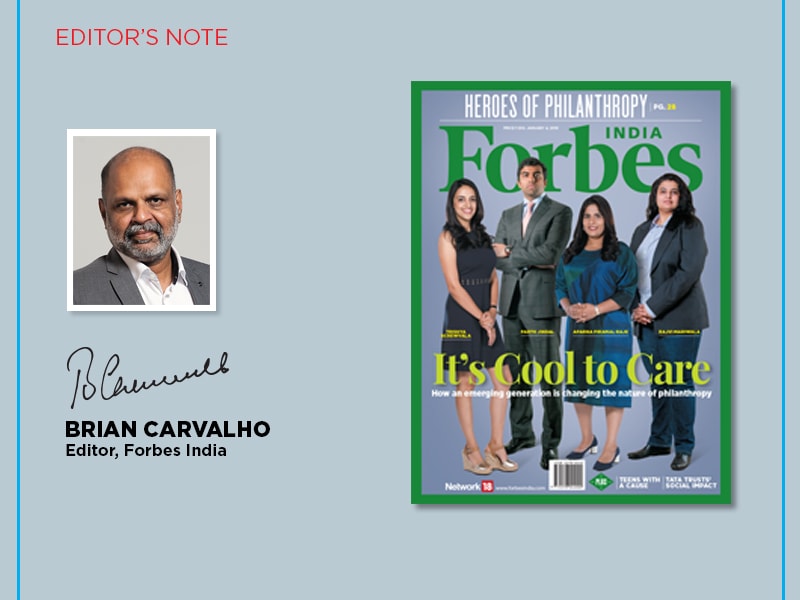Goodwill hunting
Doing good isn't all about writing cheques; it's also about empathy



What’s common between Parth Jindal and Justin Rockefeller? For starters, both are descendants of illustrious billionaires. Parth’s grandfather was OP Jindal, a steel baron known also for his charitable and philanthropic initiatives in education and medical care. Justin’s grandfather was JD Rockefeller, an oil baron considered the wealthiest American of all time who went on to financially support institutions like Harvard, Yale and Columbia, and found the Rockefeller University.
Both Parth and Justin seem to have carried on in the philanthropic footsteps of their grandfathers. There are differences, of course, the most glaring being that Parth’s primary responsibility currently is the cement business of the conglomerate his father Sajjan Jindal heads, called JSW. But the 28-year-old also finds time to intervene in projects of the group’s foundation, the most recent being the one to improve the child malnutrition rate in a tribal district on Mumbai’s outskirts. Perhaps the 39-year-old Justin, who co-founded The ImPact in 2013 as a non-profit in which wealthy families make investments with measurable social impact, may well be an inspiration for Parth.
Parth, of course, isn’t the only ‘socially-conscious’ next-gen member from Indian business who is keen to give back by using the ample wealth generated by the family over decades. As Forbes India’s Varsha Meghani found out, a bunch of the young and the rich is eager to take forward the family tradition of giving. The difference with this generation? “They’re driven by strategy and impact rather than recognition or obligation, as was often the case earlier on,” explains Meghani.
Inheritors and descendants are doubtless best placed to give back. But the good news is that a number of creators of their own wealth, too, are keen to make a difference. Example: Kochouseph Chittilappilly, the Kerala-based tycoon who handed over his two businesses—V-Guard Industries and Wonderla Holidays—to his two sons, to pursue philanthropy. As Forbes Asia’s Naazneen Karmali writes, Chittilappilly donates much of his annual earnings, including dividends ($1.2 million in 2017), to the foundation he started in 2012.
One of the bigger heroes of giving over the past century has been the Tata group, from the time founder Jamsetji Tata formed the JN Tata Endowment in the late 1800s. Naini Thaker takes a peek into a recent initiative from the Tata Trusts called Social Alpha, which is catalysing socially-relevant innovation and entrepreneurship.
So, philanthropy is only for those who inherit a stash or create their own, right? Maybe not. Lack of funds isn’t preventing teenagers from backing social causes or pursuing innovations that improve lives. The enablers are a plethora of crowdfunding platforms which, as Divya J Shekhar explains, are encouraging 15- and 16-year-olds to practice everyday philanthropy.
Crowdfunding has also helped a young couple realise its unique dream—of living out of their jeep, staying with tribal communities and trying to solve their problems. Almost three years after setting out on their ‘Drive for Change’, the photographer-writer duo is now on the second leg of its initiative, fittingly called Rest of My Family. Don’t miss Pankti Mehta Kadakia’s chronicle of the rare philanthropic way of life of Piyush Goswami and Akshatha Shetty. Yes, doing good isn’t all about writing cheques. It’s also about empathy.
Best,
Brian Carvalho
Editor, Forbes India
Email: Brian.Carvalho@nw18.com
Twitter id: @Brianc_Ed
First Published: Dec 21, 2018, 11:16
Subscribe Now